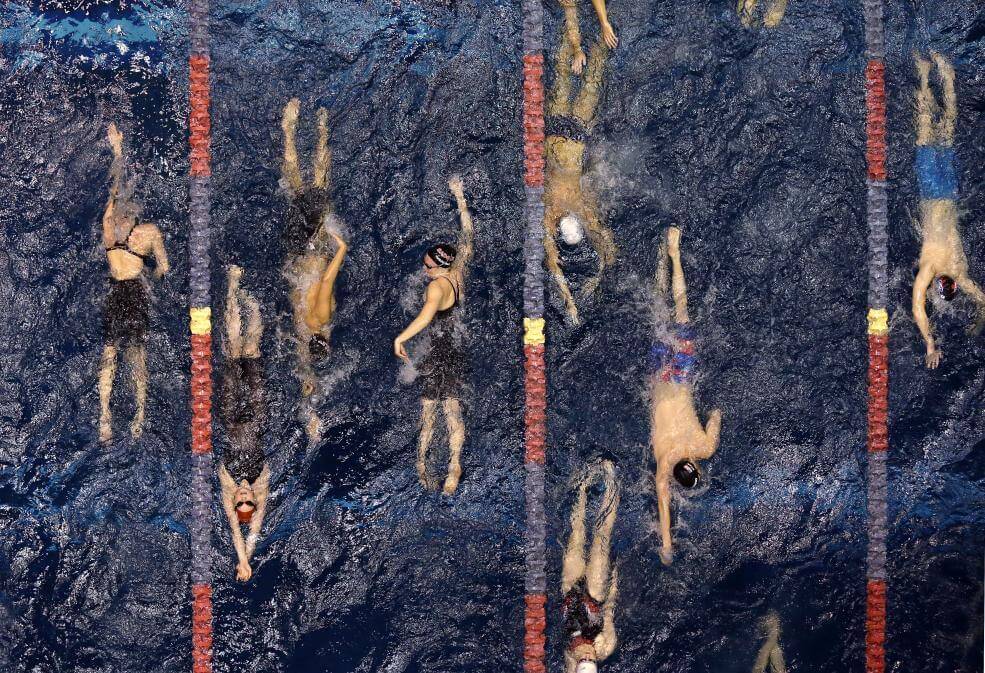10 Things That Drive Swimmers Absolutely Crazy
Being a seasoned swimmer has its ups and downs: we know our way around any and every pool, we constantly smell of chlorine, our faces have permanent goggle marks and we can all count in fives exceptionally well. Forty-five plus 45 equals 1:30, right? Whether we like it or not, swimming becomes our identity as we form a legacy for ourselves and our career. With the territory comes unspoken codes of conduct that, when broken, can cause some dissension on the team. Although everyone is different in the water, we all have the same things that creep under our caps and makes our blood boil. Here are 10 pet peeves every swimmer can relate to.
1. Leaving the wall early during a set.
Photo Courtesy: Ironman
In the swimming world, there’s an unsaid rule that everyone follows: never leave the wall earlier than five seconds behind the person in front of you. Swimming so closely leads to unnecessary drafting and just being inside the person’s bubble in front of you. Those who don’t follow that rule have it out for themselves. Drafting off of someone during a meet can become quite beneficial, but there’s no need to draft off of your teammate during a 200 kick in warm up, right?
2. When someone touches your feet.
Just like leaving early, touching the person’s feet in front of you seems to be one of the biggest pet peeves among swimmers. Although we share lanes with our teammates and sometimes they can become a little packed, there is no reason to be touching each others’ feet. It is irritating and messes up their stroke and their flip turn as well.
3. When swimmers don’t let you pass.
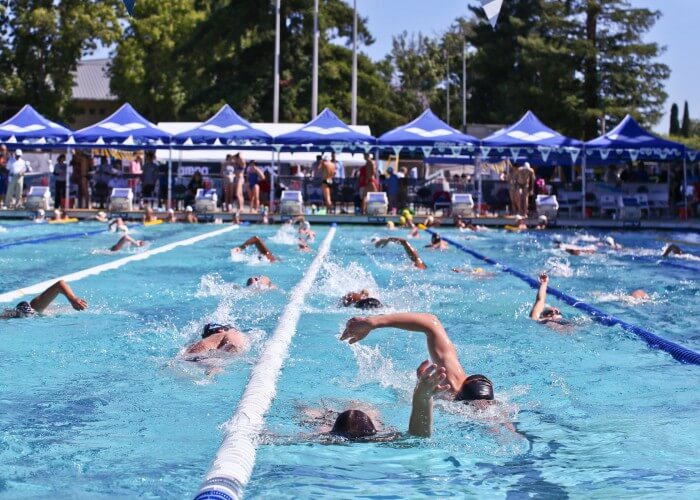
Photo Courtesy: Becca Wyant
On another note, some people take you trying to pass them as a race. Newsflash: it is not. We’re all good at different things in the water, and sometimes we forget to go in front of someone. So instead of touching their feet, we try to make a pass. This becomes a game we don’t exactly want to play, and most of the time, we end up losing… And then, Michael Phelps’ infamous 200 fly face becomes oddly familiar.
4. When swimmers turn around in the middle of the pool.
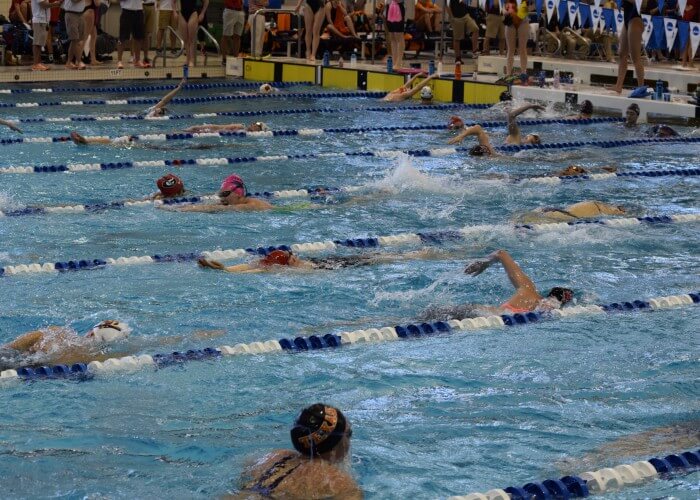
Photo Courtesy: Annie Grevers
While people who don’t let you pass are over-achievers, those who chose to turn around in the middle of the pool really pull strings as well. Instead of wasting energy to make a pass, they stop in the middle of the pool, take a good deep breath and turn around without finishing the length. This messes up intervals and confuses other people in the lane as well. Only sometimes is it a better option than trying to pass the impossible-to-pass teammate.
5. “Did you win?”
This can be one of the most complex questions to answer, especially for people who don’t understand swimming. Winning is a lot harder than people think it is, so when we don’t win, we try to find ways to explain how we did in terms of personal goal. This can be difficult to do. We cut time on our best race and beat out someone who always seems to swim faster than us. While to us that’s considered a self-victory, it’s not exactly classified as a win on paper. So, instead of spending time trying to explain what it means to win, we simply settle with saying “it’s complicated.”
6. Pulling on the lane line.
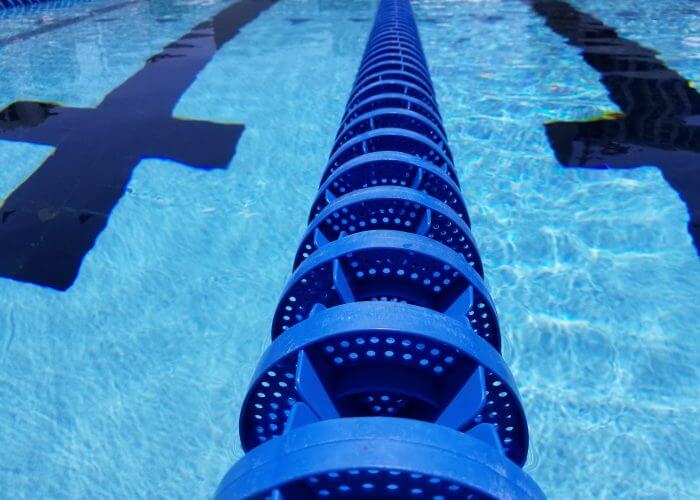
Photo Courtesy: Andy Ross
To my fellow backstrokersn- this one’s for you! We’ve all fallen victim to this at one point or another during a swim practice. It’s hard to not pull on the lane line when your legs are giving out only half way through a tough set. The extra boost is nice every once and a while, but it can quickly become addictive if used untastefully. Before you know it, every once in a while becomes every length of backstroke you swim. Suddenly, you’ve been disqualified in the 100 back during a meet. Now, to face your angry coach…
7. The Sally Saver Teammate.
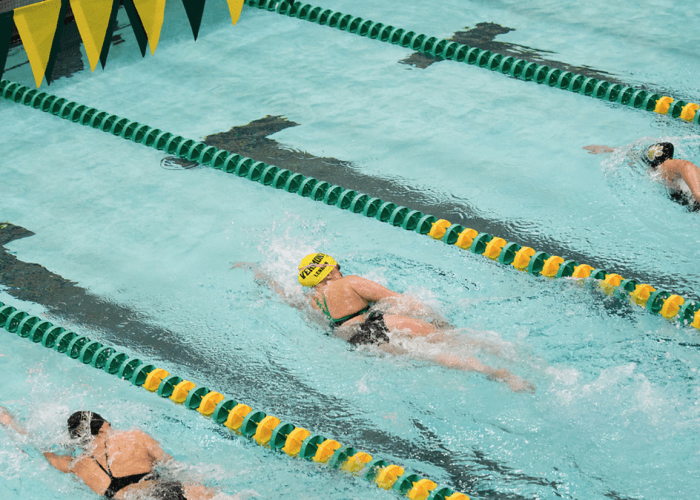
Photo Courtesy: Brian Jenkins – UVM Athletics
We all know that teammate who saves their energy for the very last 50 of the sprint set. Picture this: you’ve given the set your all and your legs numb. You’re just pushing to finish when suddenly, out of nowhere, your teammate zooms past you and touches the wall in what seems like record time for the end of a set. That, friends, is a Sally Saver at it’s finest. Sure, it’s hard giving 100 percent all of the time, but pushing ourselves even when it gets hard is so worth it!
8. Storytellers during hard sets.
Sometimes it’s nice to have talkative teammates. They can give us energy, positivity and motivation. Other times, however, this can go south – especially when you’re in the middle of a hard set. Moreover, these teammates tend to not listen when coach is explaining something and have no idea what’s going on. Sure, we want to hear their story, but is this really the best time? Not to mention, how do they even have enough oxygen to talk?
9. The “I have a cramp” stretchers.
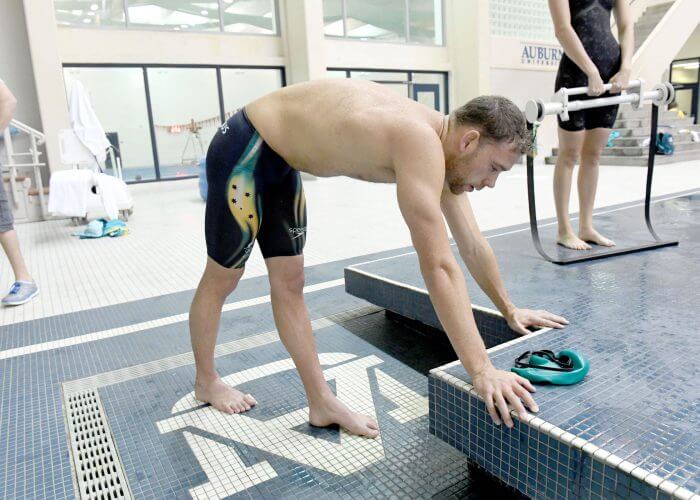
Photo Courtesy: Delly Carr / Swimming Australia Ltd.
We all have that teammate who coincidentally gets a cramp in the middle of a hard set. While we’re dying, they hop out of the pool and stretch for 10 minutes or so until right before the sets ends. Then, they jump back in the water swimming faster than ever, touching our toes and trying to pass you. Suddenly, everything about the situation is irritating. We all have a cramp, kid, we all do.
10. Overwhelming negativity.
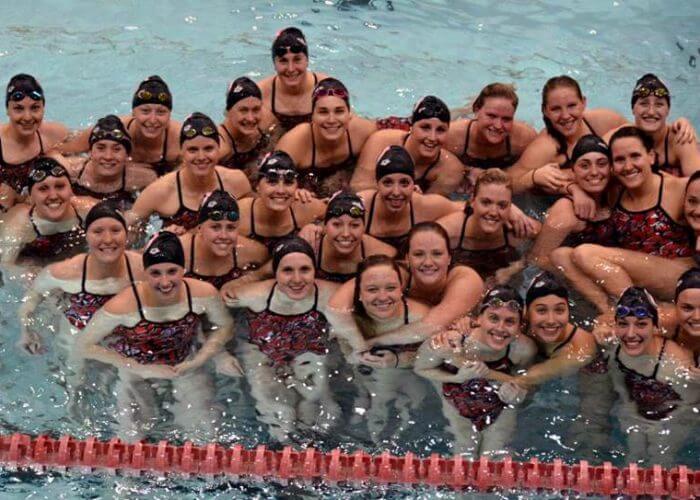
Photo Courtesy: UNO Swim & Dive
Everyone knows that negativity spreads far more quickly than positivity. It takes one Negative Nancy to completely ruin a set for everyone, and negativity is difficult to bounce back from. It’s hard to be positive all the time, but sometimes positivity, is the only way to keep going. Leaning back on our teammates can help keep us going when sets get hard. Plus, there isn’t anything to gain from being negative. Sure, you may not be making your paces, but verbally showing your frustration isn’t going to magically help you swim faster, is it? Be positive, uplifting and encouraging. Try finding the best in every situation instead of sulking on the negative!
We all have annoyances that really tug on our goggle straps. What really bugs you at practice?
All commentaries are the opinion of the author and do not necessarily reflect the views of Swimming World Magazine nor its staff.
